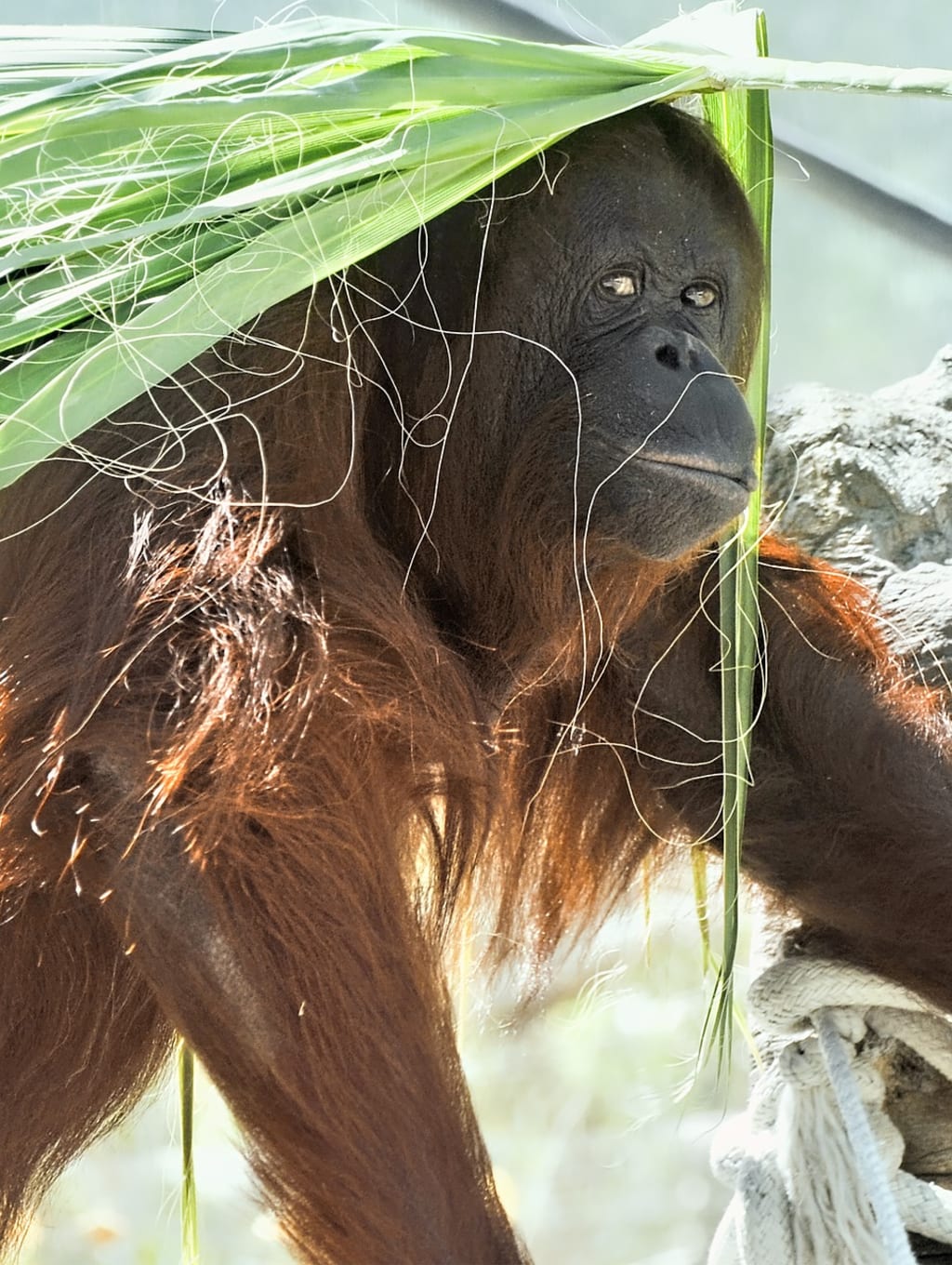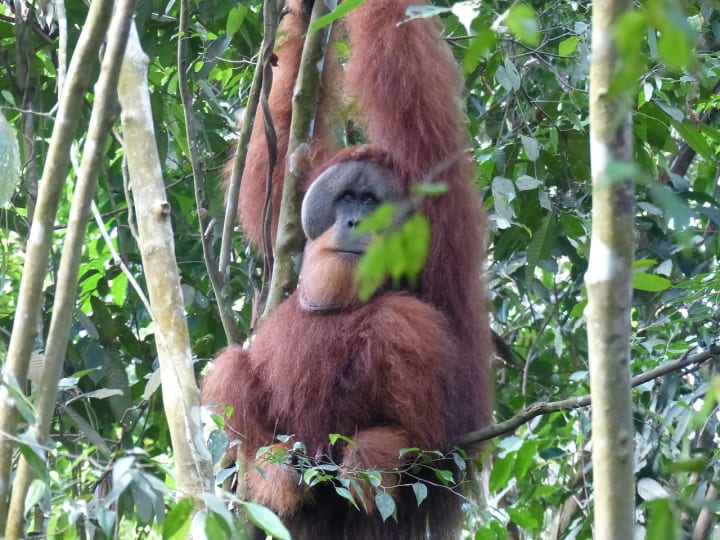Orangutans use herbs to treat wounds
Orangutans are surprising because they know how to use herbs to treat open wounds

Scientists were surprised when they discovered for the first time that an orangutan knew how to use plants to make medicine to treat open wounds on the animal's face.
According to a report recently published in the scientific journal Scientific Reports, scientists have discovered that a male Sumatran orangutan knows how to treat open wounds on his face with herbs.
Specifically, an orangutan named Rakus chewed the leaves of a vine called Akar Kuning, using the juice from this leaf to apply to the wound. Rakus then used the chewed leaves to apply to his wound.
Notably, Akar Kuning is an herb that is also used by people in traditional medicine to treat many diseases such as dysentery, diabetes, malaria...
Dr. Isabelle Laumer, working at the Max Planck Institute for Evolutionary Anthropology of Animal Behavior (Germany), lead author of the study, said she and her colleagues were surprised and delighted to observe the behavior of the orangutan Rakus. The animal currently lives in Gunung Leuser National Park, Aceh province, Indonesia.
Scientists say they have observed some primates swallowing, chewing or rubbing plants with medicinal properties, however, they have never seen them use them. Herbal medicine for open wounds.
The research team believes that Rakus orangutans knew how to use herbs to treat open wounds repeatedly until the wound became healed.
"This innovative behavior is the first report of an animal actively treating an open wound with a bioactive plant in a great ape," said Dr. Isabelle Laumer.
Scientists believe that Rakus was injured on his face after a fight with another male orangutan. This is a rare occurrence because the area where Rakus lives has abundant food sources, a relatively stable social hierarchy, and the highly social nature of orangutans means they hardly encounter each other.
Because orangutans are rarely injured, scientists do not have many opportunities to research and observe the self-healing behavior of this primate. Therefore, scientists believe that Rakus knowing how to use herbs to treat diseases may be a personal creativity, instead of a species' instinct.
"This orangutan may have accidentally touched his wound while eating leaves and he found that the leaf juice helps relieve pain, so he continuously repeated this behavior until when the wound is healed," commented Dr. Isabelle Laumer.
Another hypothesis put forward by scientists is that Rakus may have learned how to treat wounds from other orangutans in the area where he lived. Previously, scientists have found that some primate species such as orangutans, chimpanzees... can convey and guide each other with new knowledge and skills they learn in life.
Scientists' findings have provided new knowledge about the ability of orangutans, our closest relatives to humans, to self-treat wounds. In addition, scientists say this research will also help learn more about the origins of how wounds were treated in early times.
"It is very likely that the way human and orangutan ancestors treated wounds was similar in the past," said Dr. Isabelle.
The researchers plan to take a closer look at any injured orangutans in the area to see if the behavior of using herbs to treat injuries is repeated.

The Sumatran orangutan (scientific name Pongo abelii), is a species of orangutan found only in northern Sumatra island, Indonesia. Adult Sumatran orangutans can be 1.7m tall and weigh about 90kg, with females being smaller than males.
Sumatran orangutans in particular and orangutans in general know how to use tools to find food, including fruits, insects, bird eggs, small vertebrates...
Currently, the number of Sumatran orangutans in the wild has decreased sharply due to habitat loss and illegal hunting. The International Union for Conservation of Nature lists this orangutan on the list of critically endangered animals.
About the Creator
Culture Discovery
Mysterious things are always an attractive topic and stimulate people's curiosity. From unexplained supernatural phenomena, mysterious ancient relics, to mysterious and dark stories the world is full of mysteries waiting to be discovered.






Comments
There are no comments for this story
Be the first to respond and start the conversation.